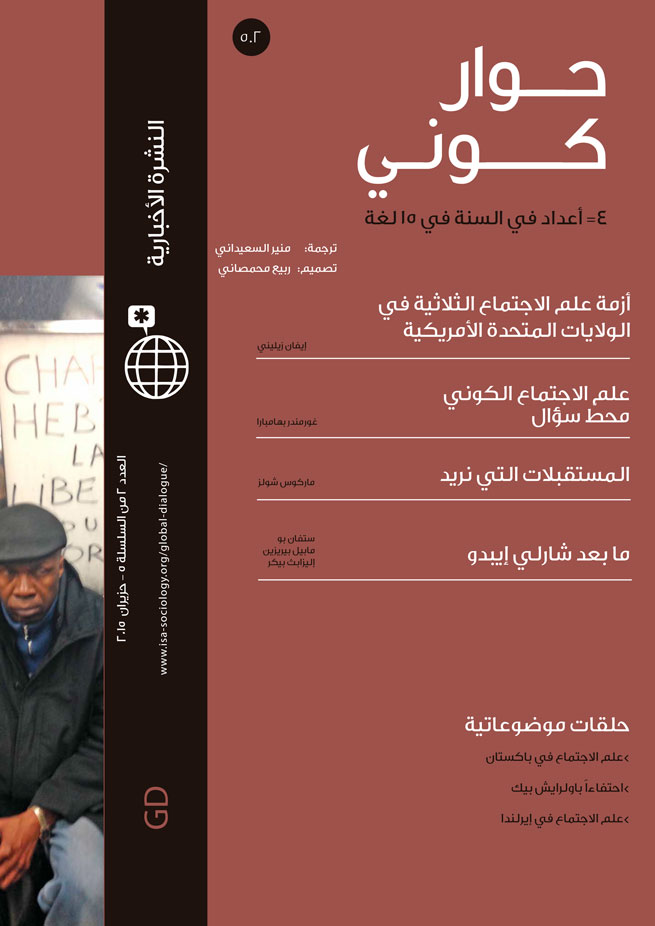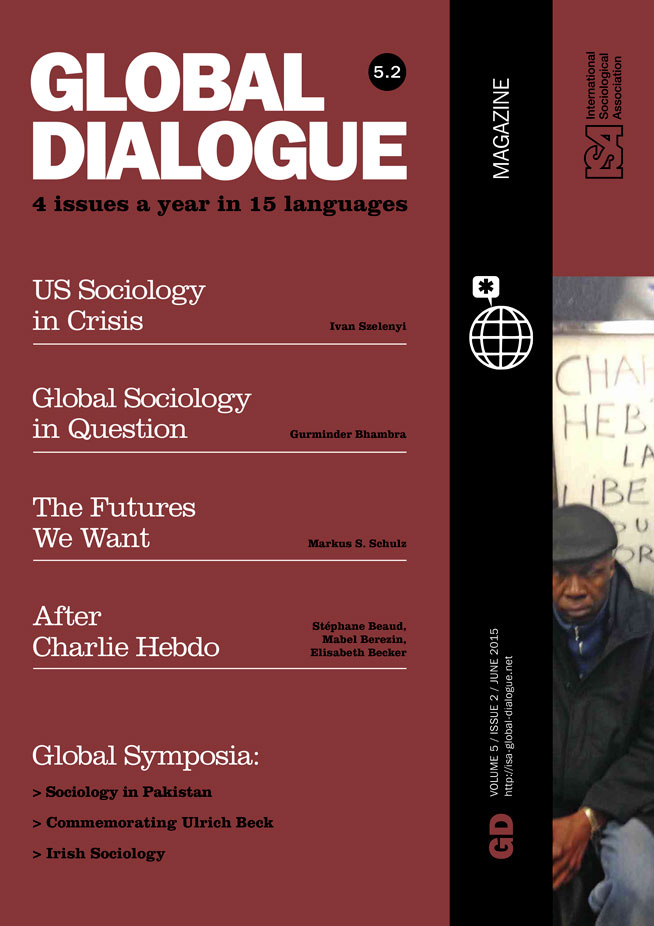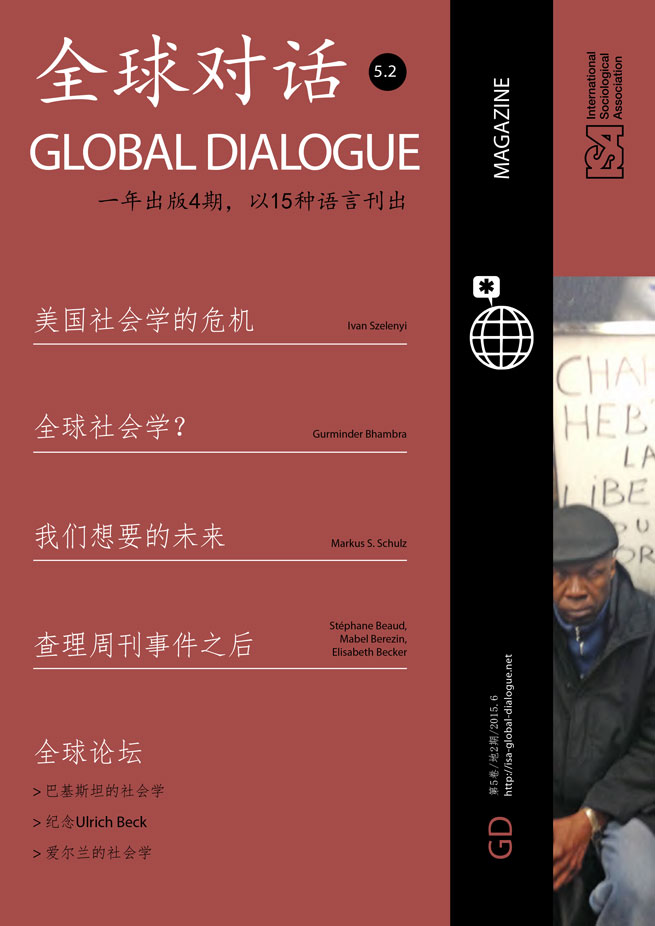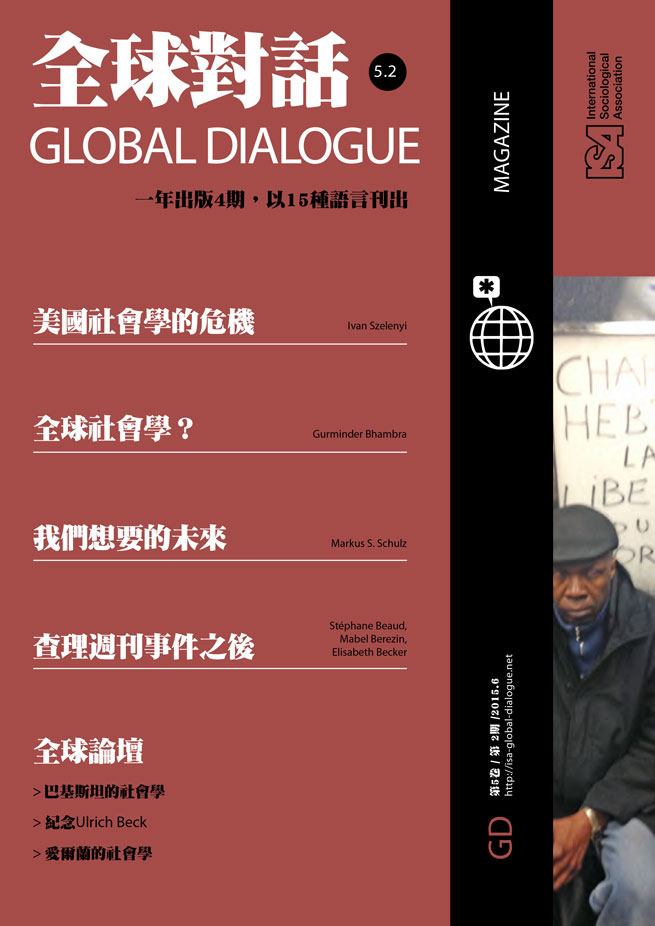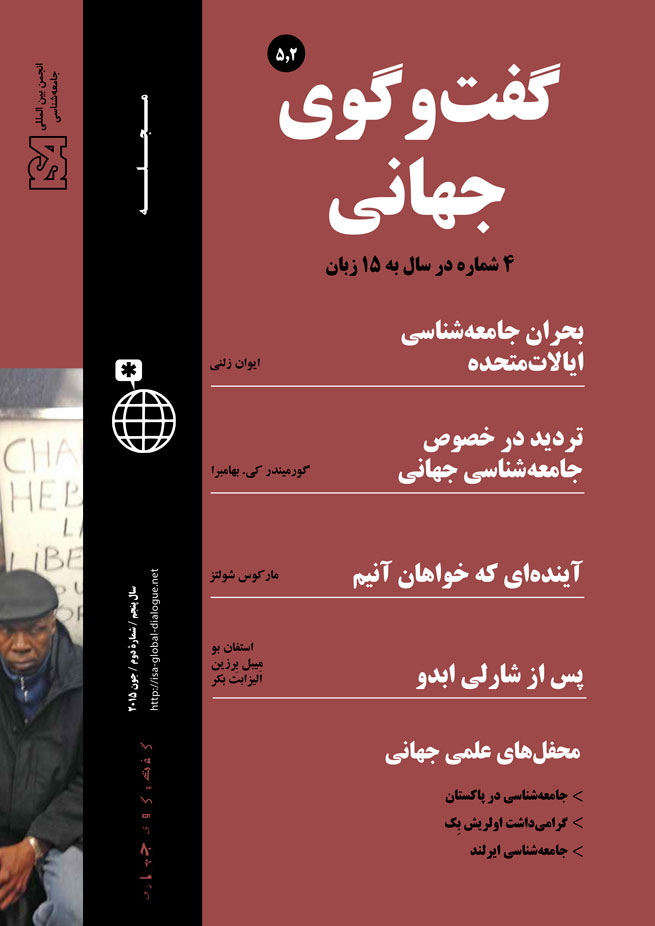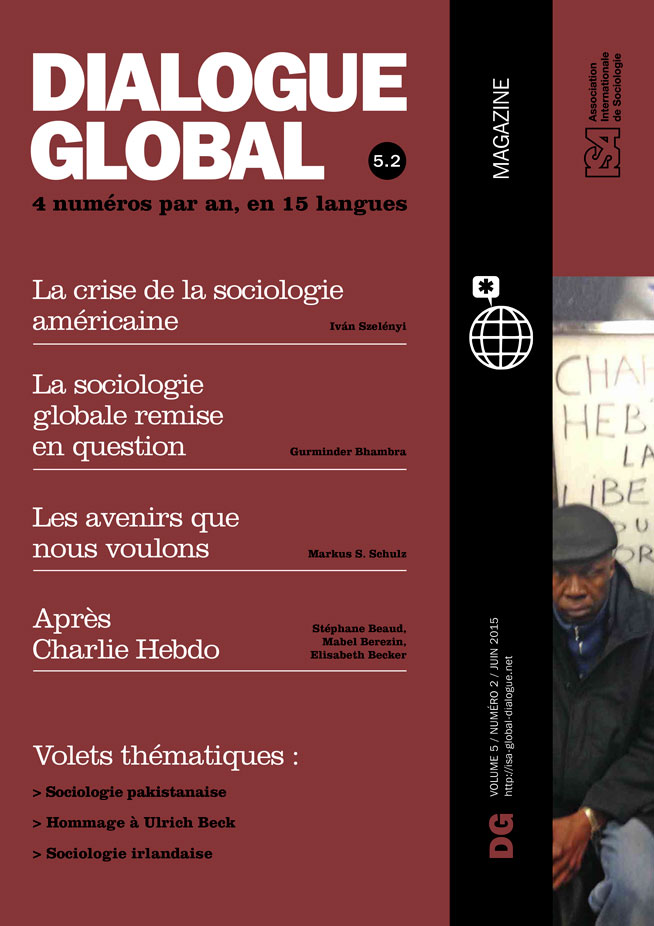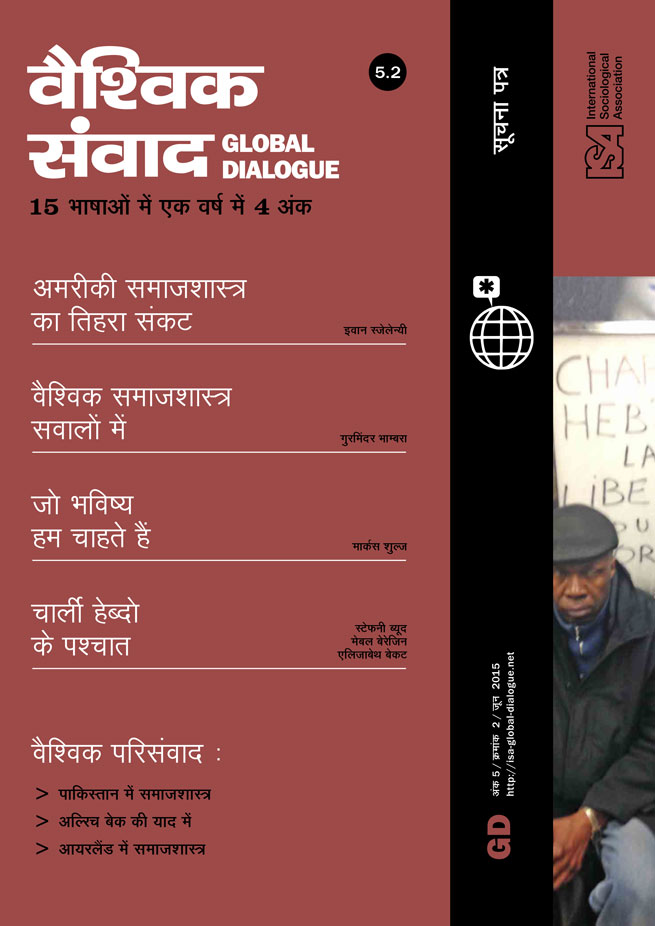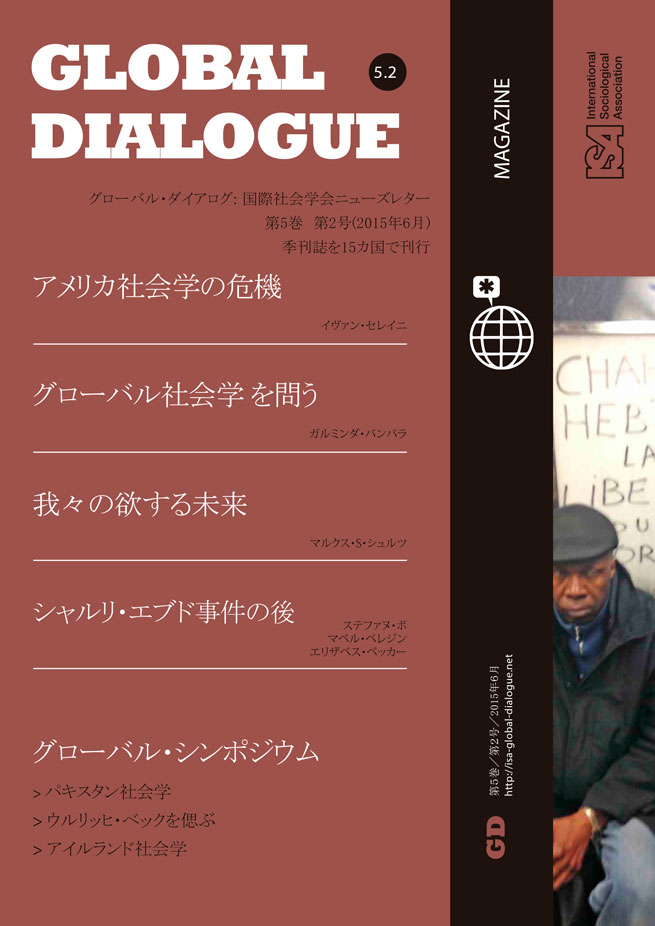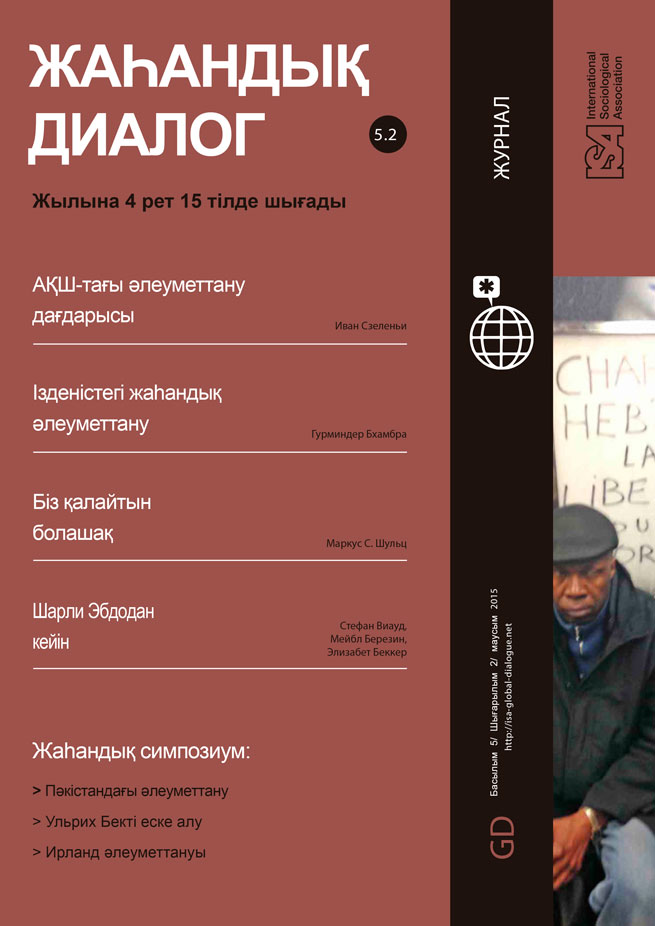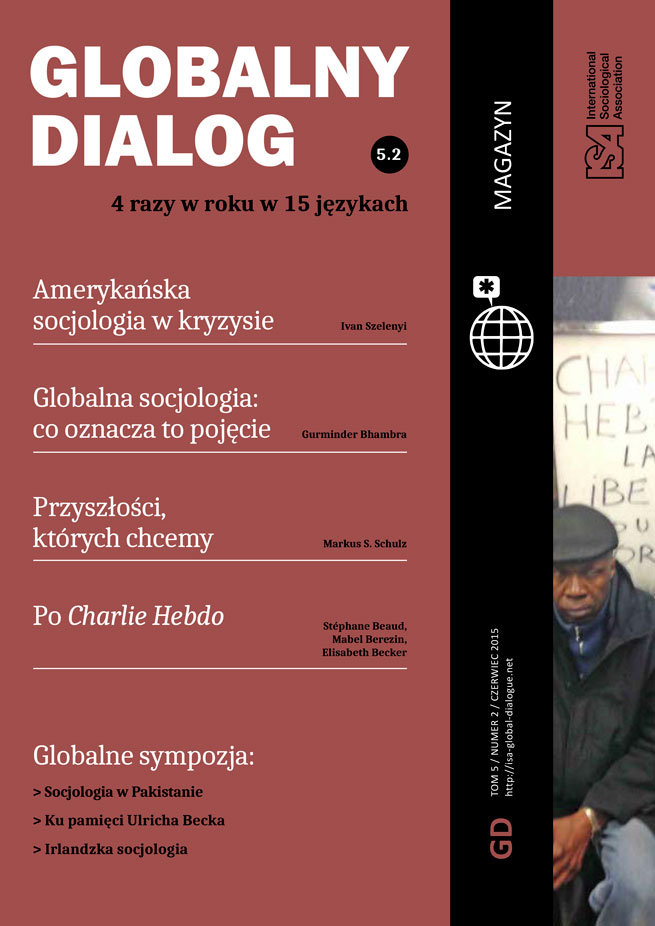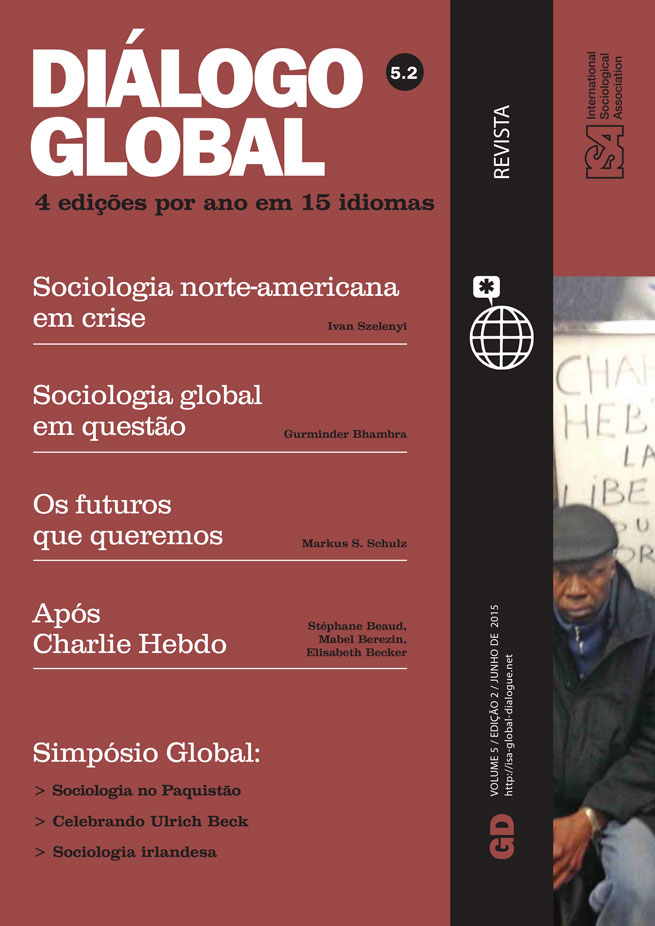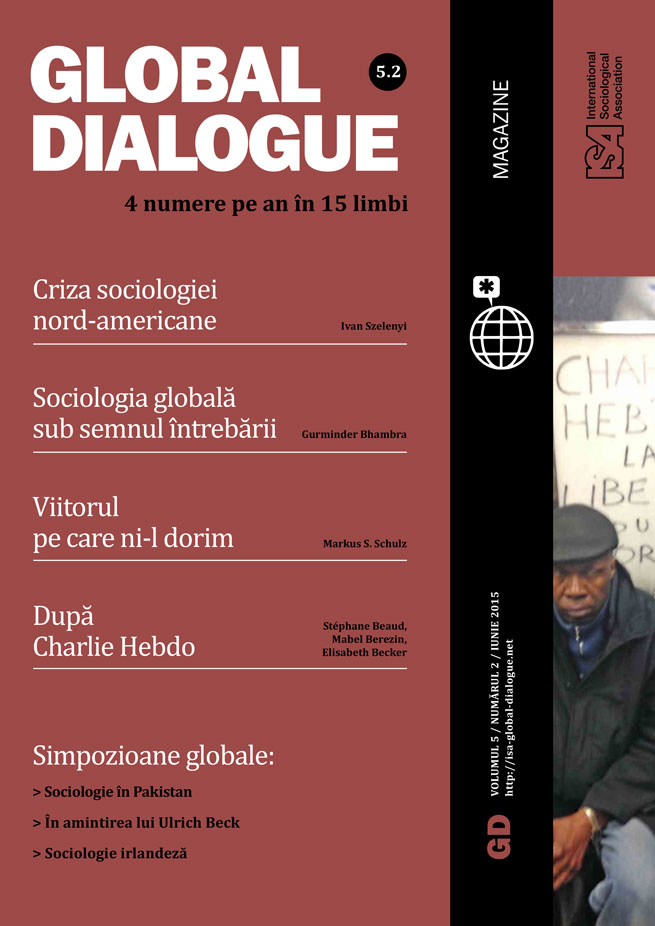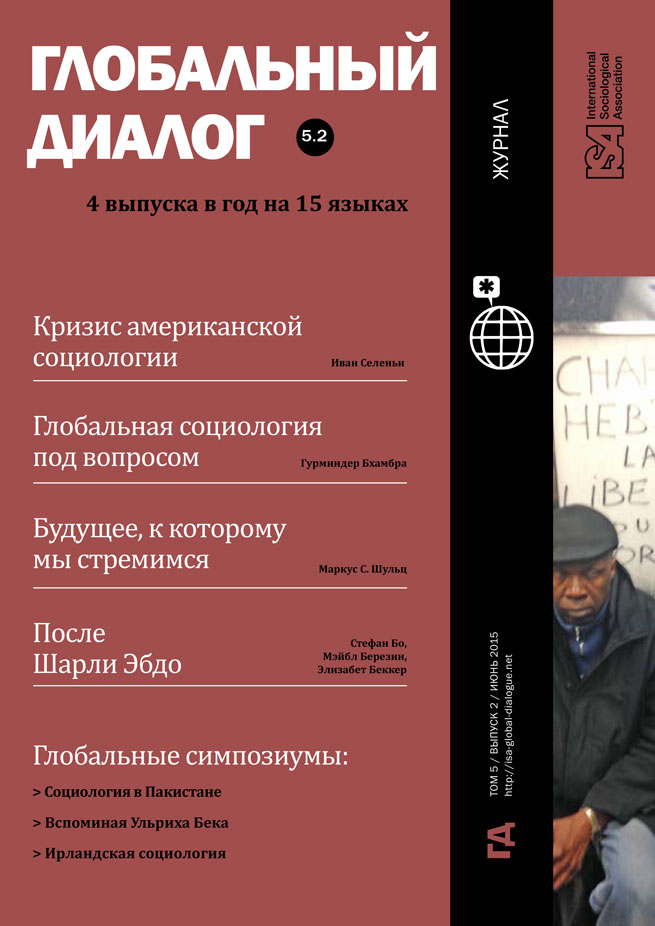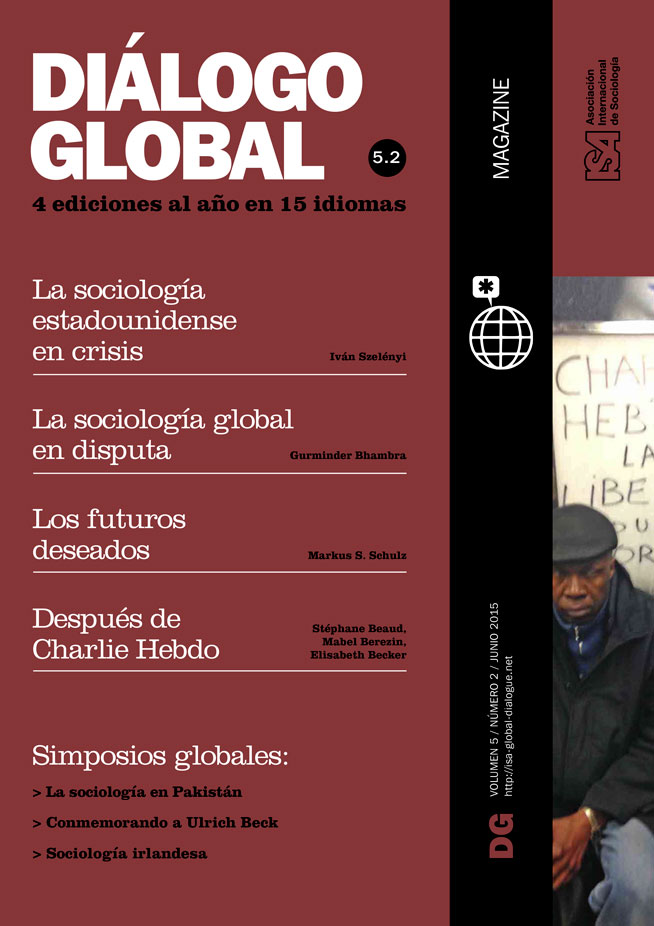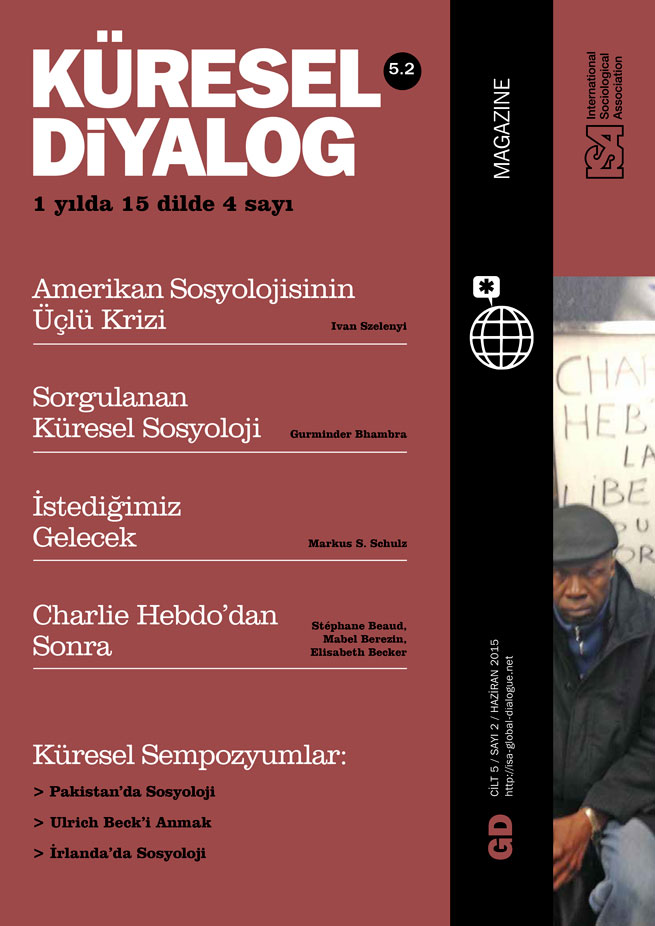Read more about After Charlie Hebdo
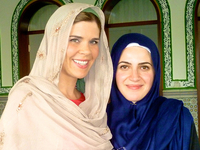
Notes from the Field: Europe’s Harvest of Fear
by Elisabeth Becker

Extremist Politics Before and After Charlie Hebdo
by Mabel Berezin
April 30, 2015
Can the social sciences offer “on-the-spot” commentary about the events of January 7-9, 2015 (the deadly attack on Charlie Hebdo in Paris and the anti-Semitic killing at a kosher supermarket)? Or is it better to keep our distance, letting media intellectuals – that French species so hostile to the sociological endeavor – take over? To remain silent seems particularly difficult after the events that both shattered French society and set it in motion – as demonstrated by the great (and ambiguous) citizen march of January 11.
Soon after France’s 2005 riots, Gérard Mauger suggested a first line of research: examining sociologists’ perspectives on these events. After the attacks of January 7-9, 2015, popular media outlets published articles by sociologists working in different theoretical traditions, providing an opportunity to explore the public positions of diverse sociologists – public positions that are inseparably theoretical and political. Written immediately after the attacks, these columns have re-launched a longstanding controversy: what type of causality should sociologists prioritize in explaining events such as these? What importance should we give to individual conduct or social background? Are explanations rooted in social causes – necessarily macro-sociological and structural – sufficient? Or do these analyses absolve individuals of moral responsibility? Conversely, would a focus on the strictly individual logics abdicate our sociological role?
The controversy has generated great debate. One of the first sociologists to enter the fray was Hugues Lagrange – researcher at the National Center for Scientific Research (CNRS) at Science Po – who drew on his research on juvenile delinquency in the Parisian suburbs. Rejecting “politically correct” explanations for delinquency, he views ethno-cultural origin as an independent factor, rather than as the product of discrimination or a synthesis of socio-economic or residential dynamics. The social profile of the brothers Kouachi and Amedy Coulibaly (sons of post-colonial immigrants, underperforming at school, raised in the marginalized cités by an unstable family, with prison records, etc.) matched “his” previous informants – a point Lagrange hammers home in Le Monde (January 14, 2015). His title, “Have the courage to see the moral faults of a desocialized minority,” captured two dimensions. On one side, he acknowledges that a segment of French youth, raised in marginalized neighborhoods (the Parisian suburbs or cités) and subsequently cut off from society, are “desocialized,” trapped in an intransigent and hostile subculture. These youth seek to reconstruct their “damaged self-esteem” through entering new religious practices, including Salafism or other forms of radical Islam. But, Lagrange writes, instead of probing problematic tendencies (male chauvinism, sexism, homophobia, violence, or anti-Semitism) that characterize this “lost” fraction of French youth, French intellectuals are “inhibited by a sense of guilt linked to colonialism, [they] do not dare confront the moral faults and the bad behavior of minorities from colonized countries.”
The next day, Didier Fassin – an anthropologist at the EHESS (The School for Advanced Studies in Social Sciences, Paris) and Princeton – took up the gauntlet, bluntly reaffirming every sociologist’s obligation to objectively examine “social causes.” Youth in sensitive urban zones experience social and spatial segregation, high unemployment rates and precariousness, as well as stigmatization and racial discrimination (at work, at home or from the police), he writes. Reminding social scientists that their role, critical at a time of historical effervescence, is to avoid what historian Marc Bloch called “the habits of judgment,” Fassin concludes, “our society has produced what it now rejects as an infamous monstrosity.”
Laurent Mucchielli, CNRS researcher and juvenile delinquency expert, similarly offers a long-term perspective (Mediapart, January 2015). France has not accepted its past as a country that massively recruited workers from its former colonies in North and sub-Saharan Africa between 1960 and 1980, with two major consequences: first, immigration was not subject to integration policies, and second, French society struggles to recognize itself as a “totally multiracial and partially multicultural society.” Acceptance would require considering Islam “as part of the basic ingredients out of which we build ourselves, suspending fear, questioning, and legislation against it” (like the 2004 law prohibiting veils at school). Mucchielli calls for a “resolutely constructive position that builds common citizenship, social cohesion and collective identity.” In my own research, I share this stance, explaining these facts in terms of social and economic pauperization, religious stigmatization and racial discrimination – a useful and even necessary explanation, yet far from satisfactory today.
There are, I think, two paths to progress. First, Cyril Lemieux (researcher at the EHESS) illustrates a “theoretical” position in his article “Unease in sociology” (Libération, January 30, 2015). A leading figure of an emerging current calling itself “pragmatic” sociology, Lemieux addresses the limits of the explanatory models deployed by “certain sociologists” – probably a cryptic reference to the “critical sociologists” loosely inspired by Bourdieu. These sociologists forget, he writes, that their task must include not only exploring structural dynamics, but also “to take seriously the wishes [of these young jihadists] to become perfect Muslims.” Lemieux targets sociologists who dismiss the citizen march – some 3.5 million people united under the slogan “I am Charlie” – as a kind of political or symbolic manipulation. Citizens took the streets that day, Lemieux argues, because they “felt the need to do so in a way that was immanent to their moral and political education,” and he concludes by reaffirming his faith in citizens’ self-reflexive competence – a competence he argues “critical sociologists” have rejected.
A second, more empirical approach considers facts that do not “fit” macro-sociological or structural analytical frameworks. The childhoods of the three assassins were marked by poverty and other difficulties; the Kouachi brothers were orphaned in their early teenage years and were placed in childhood support institutions in Corrèze. Yet they were not entirely deprived of institutional support, nor were they victims of flagrant discrimination. For example, Amedy Coulibaly benefitted from an apprenticeship at Pepsi-Cola, during which time he met Nicolas Sarkozy at the Elysée Palace. Similarly, Saïd Kouachi was employed by the City Hall in Paris as a “recycling ambassador,” although he was fired in 2009, apparently because his strict observance of religious precepts (refusing to shake hands with women and praying five times per day) distanced him from his co-workers.
This view notes that not all French jihadists are post-colonial immigrant descendants recruited from poor suburbs. Some young professionals, including socially-integrated ones, have embarked on jihad; some young converts were raised in “pavilions” far from the cités. Countries like Denmark, that have no colonial history and have treated “minorities” very differently, are as threatened as France. How do we explain this? By “reducing” our inquiries to macro-sociological factors (poor suburbs, unskilled immigrant youth, discrimination, institutional racism), do we accidentally reinforce the very stereotypes that define these youth as something “dangerous”?
The sociology of religion may help understand the motivations behind the religious attachments of these youths, allowing us to recreate the dynamics of conversion to a sectarian movement, and to identify characteristics of the recruited. This type of explanation would need to be linked to a sociology of indoctrination recreating the logics of extremist movements, as well as whatever support they may obtain from ambiguously-legal margins of Islamic practice. We should also consider the context of the attack at the Charlie Hebdo offices, trying to seriously examine the aversion of these Muslim youths towards Charlie Hebdo’s anti-religious humor – an aversion hard to understand for both youth and adults raised in the 1968-culture embodied by Charlie Hebdo, which calls itself a “stupid and vicious magazine.” Thus, Julie Pagis (CNRS researcher), has trouble perceiving the specific significance of Charlie-Hebdo’s mockery of Islam (in contrast to other religions) – this was an attack on a dominated religion that represented the only positive affiliation these youth can claim, and, furthermore, the attack brought to mind memories of the humiliating experiences of their parents’ colonial and working-class past.
Thus, we can question the different assumptions of sociologists, as well as the way the media constructs sociology’s symbolic authority. An essential question, of course, is who gets to speak, and who doesn’t? Following the attacks, descendants of Maghreb and African immigrants – successful entrepreneurs, artists (actors, musicians, comedians, writers), and athletes – began to speak up. Academics too, especially sociologists, raised the question posed by W.E.B. Du Bois, who asked in relation to African-Americans: “How does it feel to be a problem?” As sociologists, we could also evoke the difficulties we encounter in conducting serious research of the social worlds from which the brothers Kouachi and A. Coulibaly came. We lack rich ethnographic accounts of the cités, a world that has been so deeply transformed over the past decade. We need to sponsor research grants to study these questions, and to support fellowships for sociologists who come from this background.
Stéphane Beaud, École des hautes études en sciences sociales (EHESS), Paris, France <stephane.beaud@ens.fr>
This issue is not available yet in this language.
Request to be notified when the issue is available in your language.
If you prefer, you can access previous issues available in your language:
